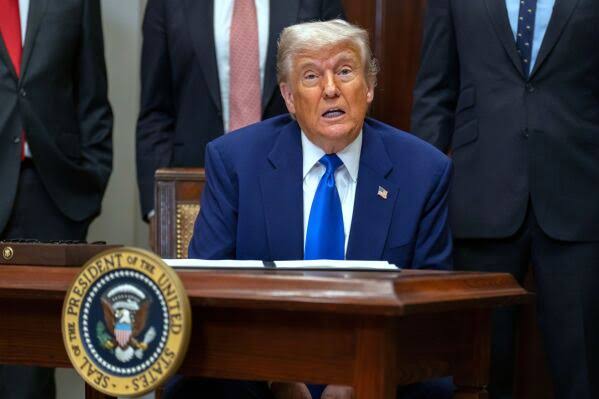The United States has postponed a planned tariff increase and outlined new import duty rates targeting several countries, including key allies Japan and South Korea.
President Donald Trump issued formal letters on Monday notifying nations of the upcoming changes. The letters, which were also shared on his Truth Social platform, stated that a 25% tariff would be imposed on goods from Japan and South Korea starting August 1, unless new trade deals are reached.
In response, Japanese Prime Minister Shigeru Ishiba acknowledged receiving the letter and expressed readiness to continue trade negotiations with the US. He emphasized the need for a balanced agreement that serves both countries’ interests, while protecting Japan’s national priorities.
Trump also cautioned that any retaliatory tariffs from these countries would be met with an equivalent increase added to the initial 25% rate. These new duties are separate from previously announced tariffs targeting specific sectors like automobiles, steel, and aluminum.
Global Reactions and Market Impact
While Asian markets reacted calmly to the announcement, Wall Street took a hit, with the S&P 500 Index experiencing a drop.
“While the news is disappointing, it does not mean the game is over,” said Wendy Cutler, former US trade negotiator and Vice President of the Asia Society Policy Institute.
Back in April, the US administration had placed a 90-day pause—set to expire July 9—on tariffs ranging from 10% to 50% for dozens of countries, including major trade partners. US Treasury Secretary Scott Bessent clarified that the August 1 date is not a hard deadline for completing negotiations.
Ishiba also noted that previous discussions with Trump had helped prevent even steeper tariffs, which were initially projected to be around 30–35%.
Countries Facing New Tariffs
In addition to Japan and South Korea, several other nations were named in Trump’s tariff letters. These include:
- 25% tariffs: Tunisia, Malaysia, Kazakhstan
- 30% tariffs: South Africa, Bosnia and Herzegovina
- 32% tariff: Indonesia
- 35% tariffs: Serbia, Bangladesh
- 36% tariffs: Cambodia, Thailand
- 40% tariffs: Laos, Myanmar
South African President Cyril Ramaphosa criticized the move, stating on X (formerly Twitter) that the decision “does not accurately reflect available trade data.”

